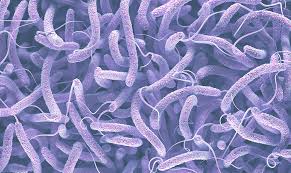The Lagos State Government says the number of fatalities from the cholera outbreak in the state has risen to 35 following the last update, which reported 401 suspected cases and 15 fatalities.
At the last count, the government said Lagos Island, Kosofe, and Eti Osa recorded the highest numbers.
But in the latest update in his Instagram handle on Saturday, the state Commissioner for Health, Akin Abayomi, said the number of confirmed cases in the nation’s commercial capital is now 417.
“As of June 20, 2024, an additional 6 suspected cholera cases have been reported, as illustrated in the accompanying graphs.
“The situation report indicates 417 suspected cases, 35 confirmed cases, and 24 recorded deaths. The graphs depict the distribution of cases among the 20 LGAs in the state.
READ ALSO:
Cholera: WHO Announces Over 1,900 Deaths, 195,000 Cases Globally
“The graphs depict the distribution of cases across the 20 LGAs and the trend of suspected cases. Let’s adhere strictly to personal and environmental hygiene.
“The Emergency Operations Center, in collaboration with all relevant partners, is actively engaged in contact tracing, community-based surveillance, awareness campaigns, sample testing, and ensuring that confirmed cholera cases receive appropriate medical treatment.”
On Thursday, the World Health Organisation announced a spike in cholera in several regions of the world, with almost 195,000 cases and over 1,900 deaths reported in 24 countries since the start of 2024.
According to the WHO, the Eastern Mediterranean Region reported the highest number of cases, followed by the African Region, the Region of the Americas, the Southeast Asia Region, and the European Region.
The global health body, however, noted that there are no reported cases in the Western Region, according to its report from Wednesday.
It said it had exhausted its global stockpile of oral cholera vaccines by March but was able to exceed “the emergency target of five million doses in early June for the first time in 2024.”
Cholera is a food and water-borne disease caused by ingesting the bacteria— Vibrio cholerae — in contaminated water and food. Cholera can cause severe acute watery diarrhoea, and the severe forms of the disease can kill within hours if left untreated.
In Nigeria, cholera is an endemic and seasonal disease, occurring annually mostly during the rainy season and more frequently in areas with poor sanitation.






















 You can install this WP plugin on your website from the WordPress official website:
You can install this WP plugin on your website from the WordPress official website: 